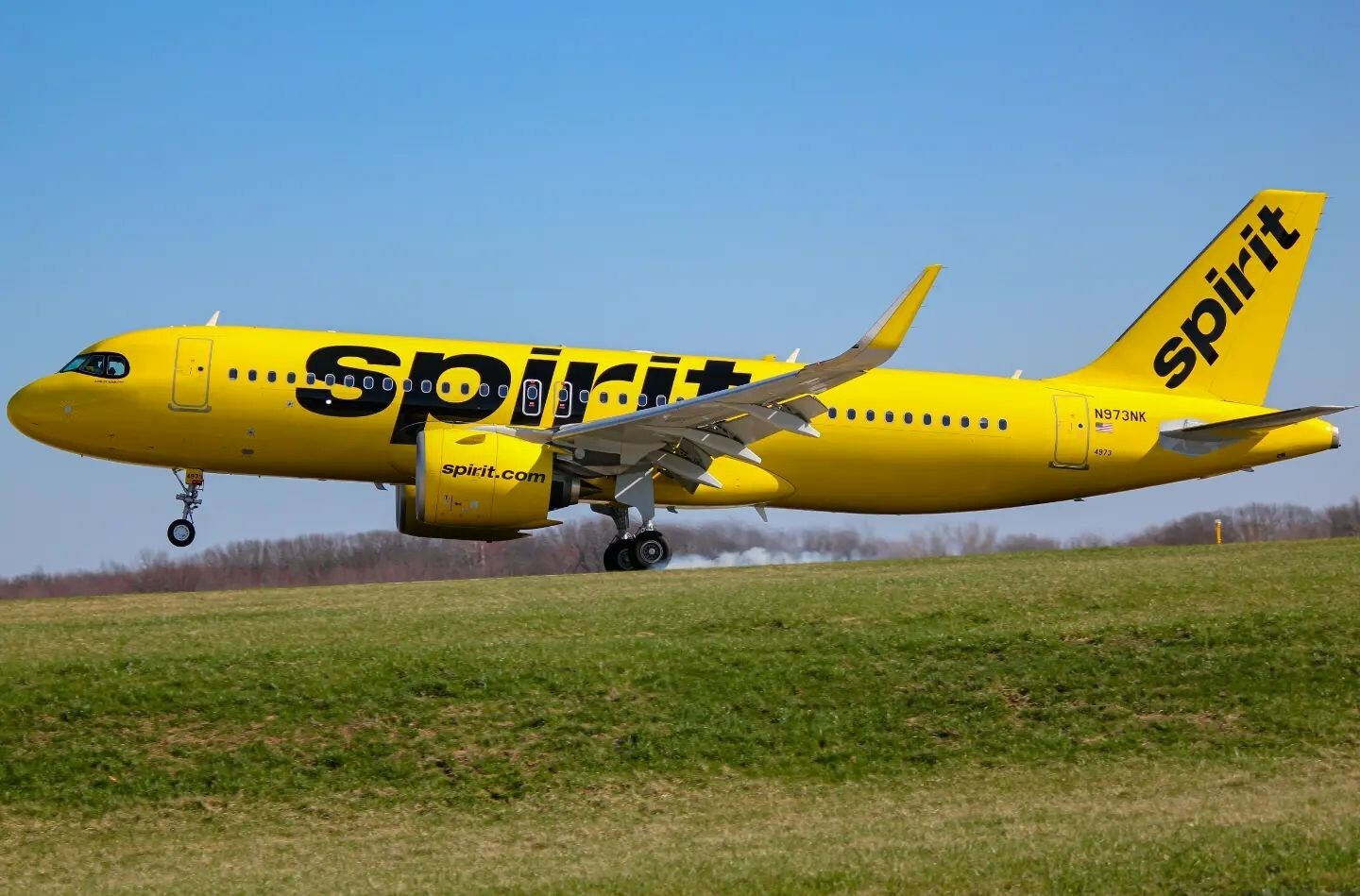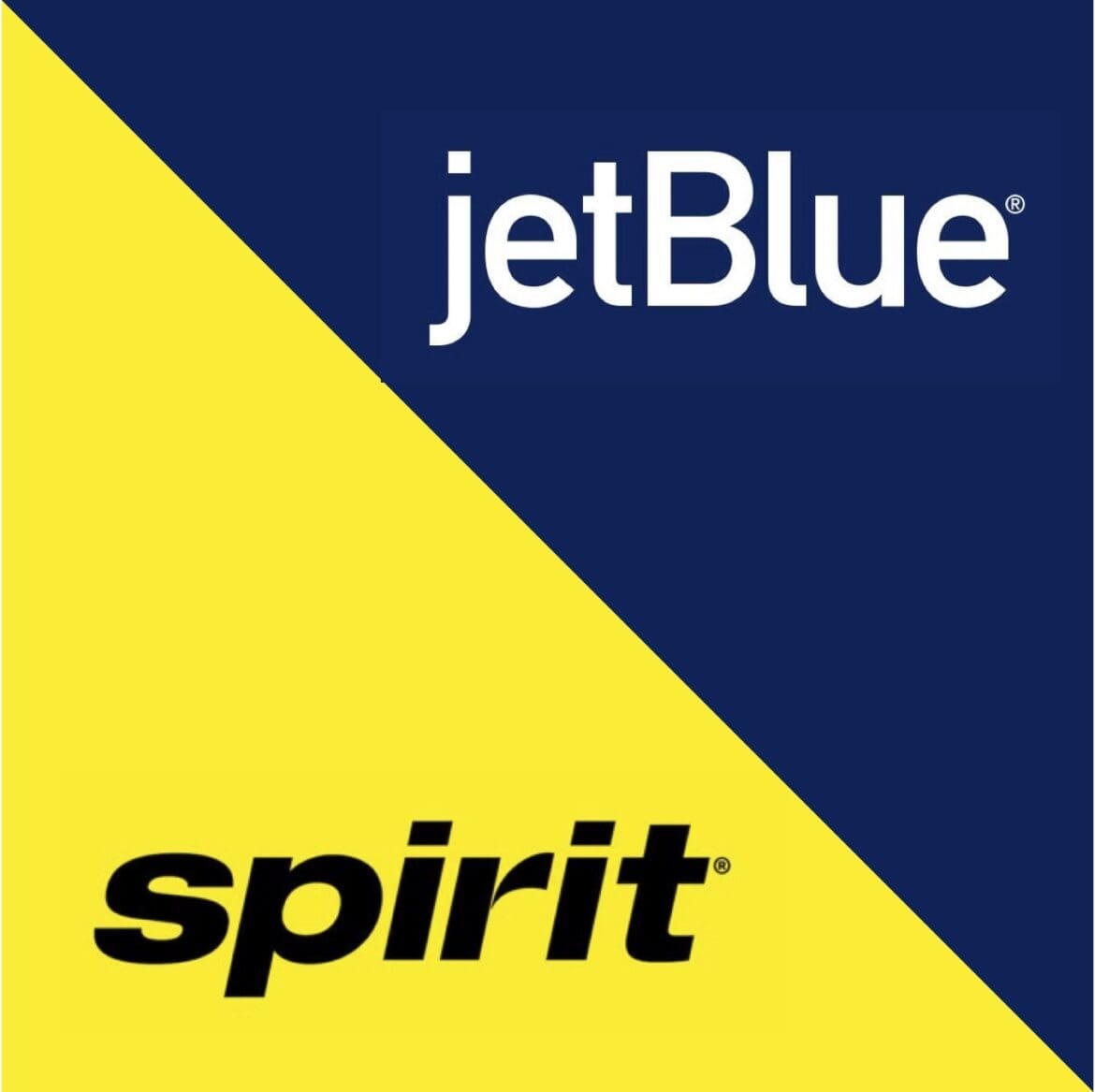Advertiser & Editorial Disclosure: The Bulkhead Seat earns an affiliate commission for anyone approved through the links below. This compensation may impact how and where links appear on this site. We work to provide the best publicly available offers to our readers. We frequently update them, but this site does not include all available offers. Opinions, reviews, analyses & recommendations are the author’s alone, and have not been reviewed, endorsed, or approved by any of these entities.
JetBlue Airways announced in July 2022 that it wanted to acquire Spirit Airlines for $3.8 billion. Frontier Airlines was planning to merge with Spirit, but JetBlue outbid them and started on its path to combining the two low-cost carriers. The Department of Justice (DOJ) challenged the merger in court. The trial ended last month (more here) and a few days ago the judge issued his ruling. It blocked the merger completely. Now, an appeal has been filed in the hopes of getting this merger back on track.

JetBlue’s acquisition of Spirit had been blocked completely. There would be no additional concessions accepted and the deal was off on the basis that it was in violation of the Clayton Act. The court’s decision read:
In sum, the Court has made its best attempt, applying the law to the evidence in this case, to predict the future of a dynamic market recovering from the COVID-19 pandemic, in markedly uncertain times. For the reasons set forth above, therefore, the Court rules that the proposed acquisition violates Section 7 of the Clayton Act. Spirit is a small airline. But there are those who love it. To those dedicated customers of Spirit, this one’s for you. Why? Because the Clayton Act, a 109-year-old statute requires this result –- a statute that continues to deliver for the American people.”
This was horrible news for JetBlue as it would need to pay Spirit the $400 million promised in the event the deal fell through. With this appeal, that will be held off. The DOJ argued from the beginning that a merger between JetBlue and Spirit would decrease competition and increase fares. JetBlue’s attorneys made a mistake at one point and released documents that were not properly redacted. They showed that the carrier would indeed raise fares by as much as 40% (more here). This likely wasn’t what caused the verdict of the case, but was a careless mistake. There are 51 markets served by both JetBlue and Spirit and the DOJ argues that fares will especially increase here.

JetBlue has countered from the beginning that the merger would create a fifth airline that could better compete with American Airlines, Delta Air Lines, Southwest Airlines, and United Airlines. To proactively try to appease the DOJ, JetBlue has given up slots to Frontier (more here) and Allegiant (more here). This had not been enough to appease the DOJ and the lawsuit to block the merger moved forward.
Judge Young, an appointee of Ronald Reagan, oversaw the case. He made a few statements last month that could be read into, but was not definitive one way or the other until today. He asked the DOJ if it would be satisfied if JetBlue agreed to more divestitures. The DOJ did not seem happy with that solution and still feels that “there does not seem to be a remedy other than a full-stop injunction that would restore competition.” In the end, it looks like Judge Young agreed.
The airlines filed a notice late today that they will appeal Judge Young’s ruling to the 1st US Circuit Court of Appeals. Interestingly, earlier in the day multiple news outlets were reporting that Spirit was trying to convince JetBlue to file the appeal.
Anthony’s Take: We’ll need to see what the appeal says and how it ends up faring for JetBlue and Spirit. This story is developing.
(Image Credits: JetBlue and Spirit Airlines.)
User Generated Content Disclosure: The Bulkhead Seat encourages constructive discussions, comments, and questions. Responses are not provided by or commissioned by any bank advertisers. These responses have not been reviewed, approved, or endorsed by the bank advertiser. It is not the responsibility of the bank advertiser to respond to comments.
Advertiser & Editorial Disclosure: The Bulkhead Seat earns an affiliate commission for anyone approved through the links above This compensation may impact how and where links appear on this site. We work to provide the best publicly available offers to our readers. We frequently update them, but this site does not include all available offers. Opinions, reviews, analyses & recommendations are the author’s alone, and have not been reviewed, endorsed, or approved by any of these entities.
